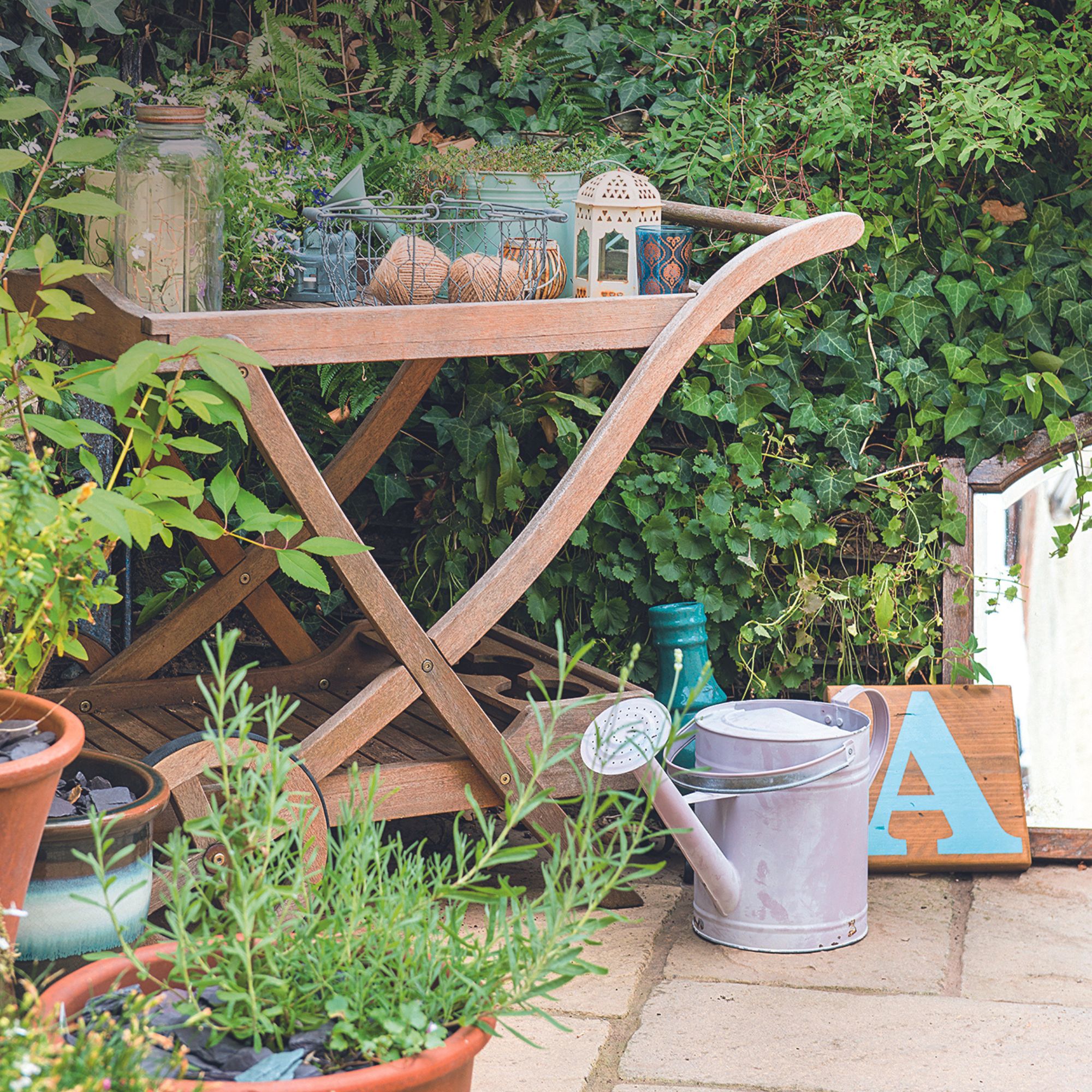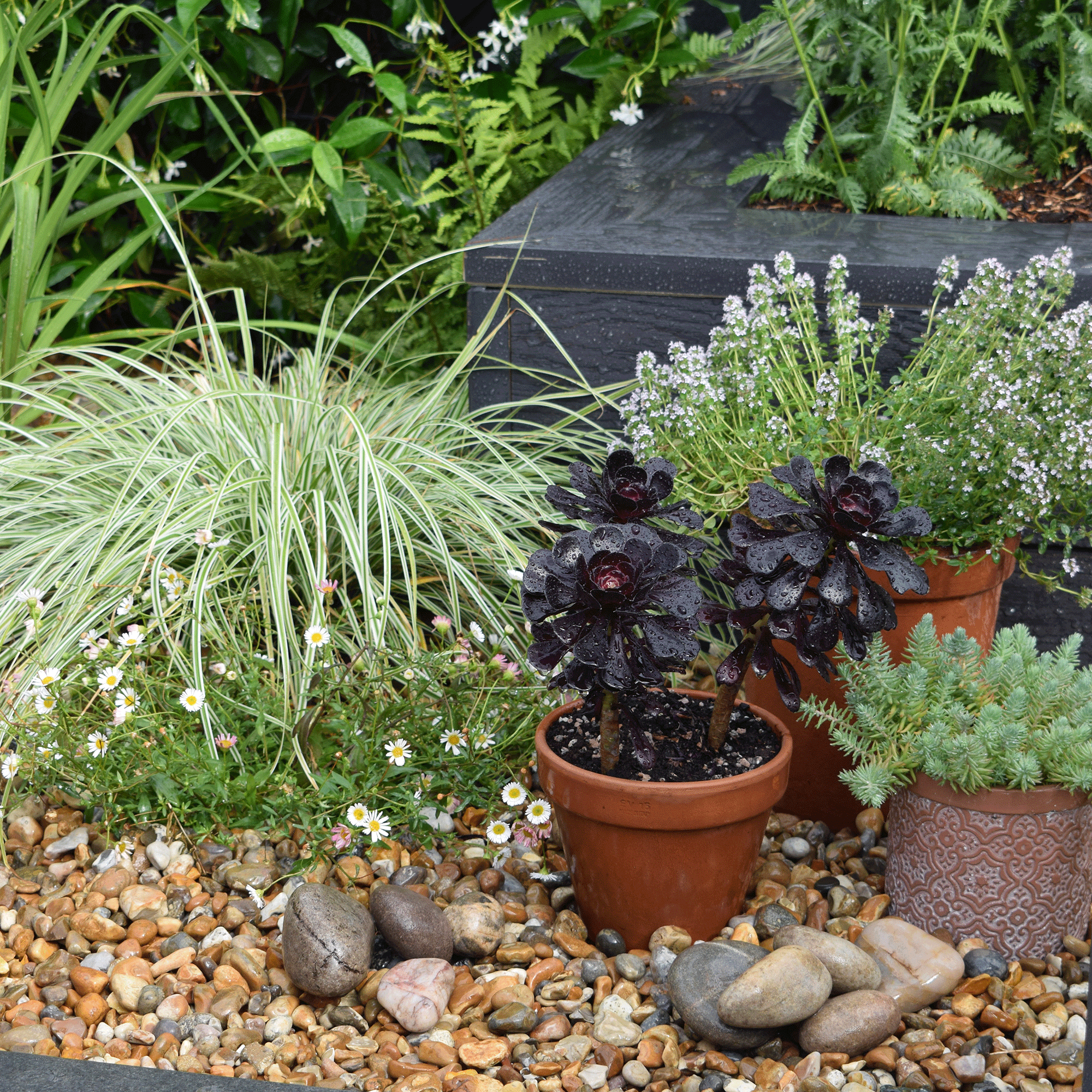
The hot weather has finally arrived, and while we're in the garden enjoying the sun, our instinct is to water our plants more often to keep them looking sprightly. But can you overwater plants in the summer?
Knowing how often to water your garden in hot weather can be a challenge, especially when best practice tells us not to overwater in normal conditions.
'You might think you are doing your plants a favour by watering them again and again when temperatures are high, but it is possible to damage your plants by giving them too much water, says Lucie Bradley, gardening and greenhouse expert at Two Wests & Elliott. 'And you will be wasting water, too!'
To check that we're not making one of many garden watering mistakes, we've asked the experts for their guidance.
Can you overwater plants in the summer?

While it may seem like your plants need as much water as you can afford to give them while the weather is hot, too much can do more harm than good.
'Overwatering is still possible in summer,' says John Clifford, director at Gardenstone. 'While plants do need more water during hot weather, excessive watering can lead to waterlogged soil.'
But what does overwatering mean for our gardens?
'One way in which overwatering your plants can damage them is that you can cause the soil to become so saturated in water that it prevents aeration – which stops your plants accessing the oxygen and nutrients in the soil,' explains Lucie.
'Completely saturated soil – especially in containers or planters – can mean that the plants' roots are sat in stagnant water which will eventually cause the roots to rot.'
Luckily, there are steps you can take to make sure you aren't waterlogging your plants.

1. Ensure adequate drainage
'Make sure that your plant has effective drainage,' advises John. 'Well-draining soil is often a must for every plant.'
As well as the right soil, it's important that plants in containers can drain effectively. Make sure pots and planters have adequate drainage holes to prevent water from sitting and becoming stagnant. That way, if you do overwater your plants in the summer, the effects shouldn't be long-lasting.
'The aim here is to reduce the water in the soil so your plants can access oxygen and nutrients,' says Lucie.
'If you can move plants in containers into a more shaded area of the garden during extremely hot weather, this should also help.'
What you'll need
This smart watering system will make sure your plants are watered when they need it.
2. Check below the surface
Another golden rule is making sure the soil remains consistently moist, not wet.
'To ensure your plants get more water, without overwatering, you need to water them deeply once or twice a week,' says Morris Hankinson, director at Hopes Grove Garden Centres. 'By this, I mean keeping the soil moist as opposed to simply watering the surface of the plants.'
The best way to check if your plants need water is to check the first few inches of the soil – not just the surface, says Lucie. 'But don’t let it get too dry – if it’s dry five to six inches from the surface, it needs watering!'

FAQs
How can I tell if I've overwatered my plants?
'There are a couple of signs of overwatering, and sometimes they do cross over with the signs of underwatering,' says John from Gardenstone. 'Overwatering signs include yellowing leaves, wilting plants even though the soil is wet, lack of growth, and general ill health of the plant.
'Root rot is also a major sign of overwatering, and this can be spotted by a foul odour or mould growing on the surface of the soil and the base of the plant.'
Can overwatered plants recover on their own?
'The only way overwatered plants can recover is if the problem is addressed quickly, and all watering stops,' says John. 'If you think your plants have been overwatered, I recommend letting your plants and soil dry out completely before you try to water it again.
'If your plant is in a pot/container, you'll likely have to remove the plant from its pot, trim any rotten roots, and repot it in fresh, well-draining soil.'
If the warning signs are already there, Lucie recommends removing the yellowed or dead parts of the plant. 'If the plant has been too badly damaged by overwatering, so that their root systems are no longer healthy, then they may not recover.'
So, now you know that you can overwater plants in the summer – and what to watch out for if you do.







